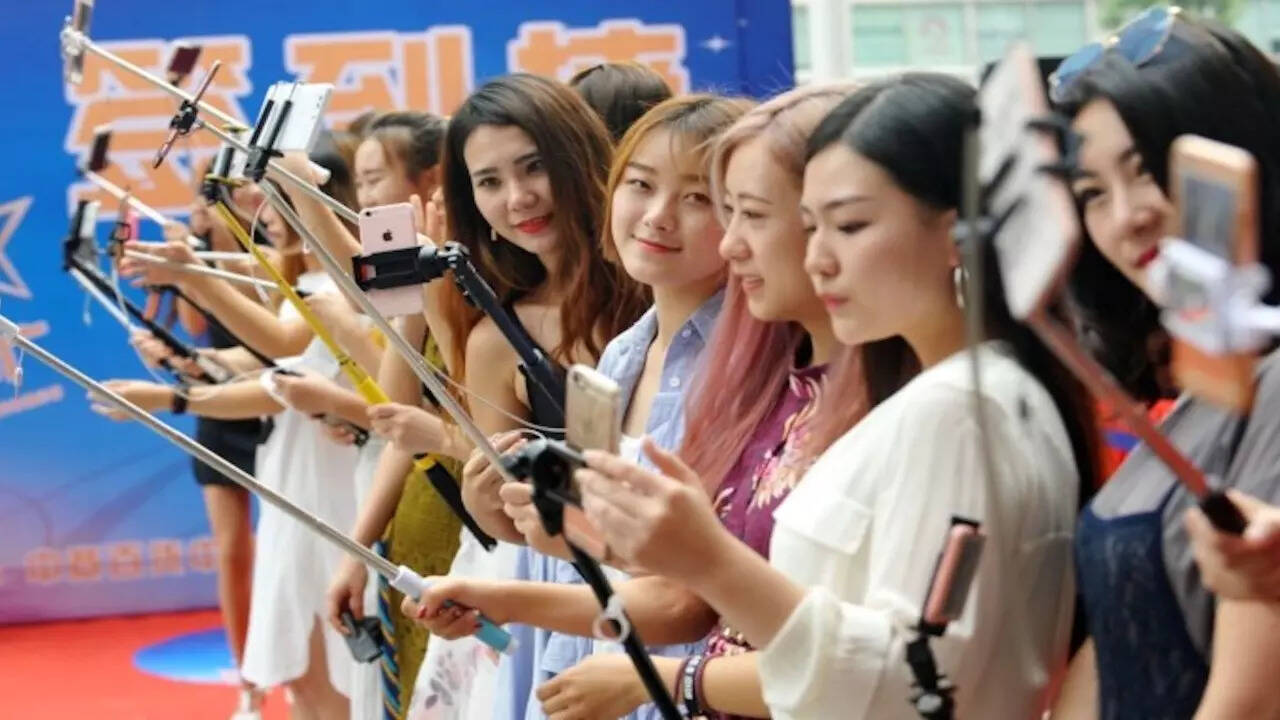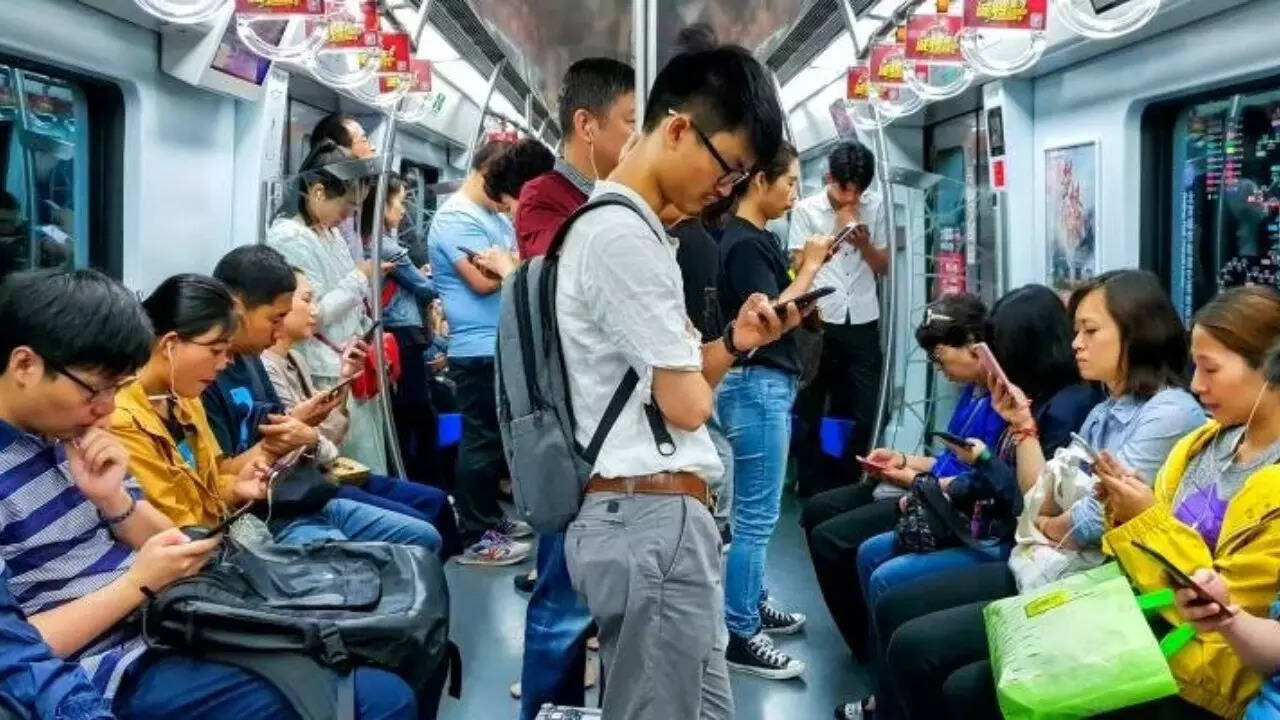ARTICLE AD BOX

We were in the middle of a random conversation when a dear friend of mine told me that she had just started using a certain hair product after seeing a well-known social media influencer recommending it on their platform.
The reason behind her trying a new hair product, especially when it was recommended by some XYZ influencer: to promote hair growth, as she was experiencing “rapid hair loss.”Mind you, she characterized it as “hair loss” — not “hair fall.”But instead of consulting a professional expert, e.g., a dermatologist, she chose to take an influencer’s recommendation — peak influencer marketing success story here!Now, we had yet to see if this particular product *actually* worked — i.e., if she really found some unruly baby hair sprawling over the forehead. Instead, what we could see was her instant reaction every time she applied that product: a lot of scalp-itchiness, a train of sneezes, a La Tomatina across her whole face!Influencer marketing: checked.The consequence of the same: we’re still dealing with that hazard!Having read this story, you might ask: “Why did she take that influencer’s recommendation?”And although that indeed is justified, it also comes with a follow-up question: Why was the influencer promoting something — without any word of caution — that clearly needed essential cautionary measures? What about their responsibility, especially when they had both power and a platform at their disposal?We’ve yet to get the answer to that question, but it looks like China has already started acting on the accountability part.
“With great power comes great responsibility”
In October 2025, the Cyberspace Administration of China (CAC) rolled out new regulatory rules that could very well mark a paradigm shift in how influencer culture functions — at least in China. Under the rule, if you, as an influencer, want to speak about certain “serious” topics — such as finance, health, medicine, law, or education — you must now provide proof of relevant professional credentials.As for valid credentials, it implies having either a university degree, recognized training, a license, or certification, before you publish content on those regulated areas.
Influencers on major Chinese platforms — such as Douyin (China’s version of TikTok), Weibo, and Bilibili — fall under the purview of these regulations.The responsibility doesn’t end with just the influencers alone.Platforms, too, are required to verify these credentials, to mark when the content uses AI‐generated elements or is derived from studies, and to explicitly label when advice is given. Influencers who fail to comply with these regulations may see suspension of accounts or even financial penalties.

At first glance, this is being explained as a measure to fight misinformation, protect vulnerable audiences from amateurish or misleading claims, and raise the bar for online “expertise”. On one hand, it promises a cleaner, more expert-led online space. But, on the other, it flags an alarming escalation of control, potential gate-keeping, and suppression of alternative voices.So, the bigger questions are looming right under the surface: is this a genuine push for quality, or a new tool of state-sponsored control?
What’s happening and why now?
To understand this regulation, we need to go beyond the headline of “degree requirement” and see the broader ecosystem in which it sits.First, China has been increasing its regulation of the online content ecosystem for years. For example, the so-called Provisions on the Governance of the Online Information Content Ecosystem came into effect in March 2020, asserting that online platforms must align with “core socialist values”, and simultaneously forbidding account manipulation, fake-virality, and “bad public opinion ecology”.Second, China’s influencer economy has exploded in recent years.
Short-video apps, live-streaming, social commerce, and whatnot! Influencers (often called KOLs — Key Opinion Leaders) have now become a major force in shaping consumption patterns, attitudes, and building public opinion.At the same time, the Chinese state has been steadily increasing regulatory oversight of the digital space.In recent years, China has also executed sweeping campaigns against “vulgar” or “ostentatious” influencer behavior (e.g.,
flaunting luxury, ostentatious consumption) as part of its drive to shape youth culture and online morality. In 2022, rules already required live-streamers or “internet anchors” who discuss medicine, finance, law, and education to hold relevant licenses and for platforms to record their credentials.

Now, the latest version (introduced in October 2025) appears tighter and more explicit — not just licenses, but degrees or training; not just platforms but content labeling; not just categories, but a more general expectation of “expertise” for regulated topics.
This specific trigger appears to be coming from a point of concern over misinformation, especially when influencers stray into domains like health, finance, or legal advice, where uninformed commentary can cause serious, real-world harm.
In official wording, the CAC says the credential requirement is to “protect the public from false or misleading advice.”Thus, the regulation is not just about influencer culture in the narrow sense, but about who gets to speak in the publicly mediated sphere, and how the state and platforms manage the signal.
The KRAs now are: noise ratio, authority vs personality, expertise vs virality.From the government’s vantage point, this makes sense. Because digital misinformation can spread quickly, non-experts offering financial advice, health advice, and legal commentary may pose a great risk to individuals and to social stability. So requiring credentials is arguably a way to raise the quality of public discourse.But if we zoom in a little bit, these regulations also fit into a pattern of tighter state control over online narratives.
Why and how? Because this rule gives platforms explicit responsibility to verify, label, and enforce, while reducing the space for informal voices. And that, most definitely, raises questions of freedom, creativity, and who gets to be heard.
The details of the rule — what’s hot and what’s not
What exactly are the key points to keep in mind? Here’s a brief picture:First and foremost, if you are a content creator or an influencer on Chinese social media and you talk about regulated professional topics (medicine, law, education, finance), you *must* hold a formal credential (degree, professional license, certification) in that field.
In addition, the platforms (Douyin, Weibo, Bilibili) are required to verify the influencer’s credentials and ensure that content includes proper disclosures (e.g.
, when information comes from academic studies, or when AI-generated elements are used).Then comes the second part: advertising of medical products. Marketing and promoting health products such as health foods, and other semi-regulated supplements has also been put on a tight leash — especially when shadow-advertising is disguised as “educational content”.Non-compliance by platforms can lead to industry fines, financial penalties, takedowns of content, or other platform-level enforcement.

Now, there are several things of note here:First of all, the rule does not say “you can’t talk at all” about those topics without credentials — what it says is, you can't do so as a “professional influencer,” providing guidance, without credentials. The exact boundary is still vague.Secondly, “credentials” include not only academic degrees but also licenses or certifications. However, there’s not much clarity on the definition of “licenses or certifications,” which, of course, gives the authorities broad discretion.The most nuanced bit comes here: the rule kicks in when the influencer treats the topic as “professional advice” rather than “casual commentary.” Who decides the fine line that becomes the line demarcation between “professional advice” and “casual commentary”? So, it may sound reassuring, but in practice, the line will be blurry.
Good bits, bad bits?
Let’s look at the brighter side first. This change could bring several positive outcomes — think quality control, credibility, and transparency.Better content quality, greater credibility: If social media influencers, speaking about health, law, and finance, actually hold relevant credentials, audiences might receive more accurate and responsible advice. By insisting on that practice, even the standard of online consultation could improve a great deal.
Not only would that reduce the chaos of misleading advice online, but the credibility factor would also build the foundation for influencer-consumer relationships on trust.
As a result, the spread of misinformation might decrease significantly.Greater trust, lesser harm: For the audience, knowing someone has an educational background on what they’re speaking about, preaching on, and promoting — it boosts their confidence to rely on the advice.
Add the platform verification factor to the equation, and it aligns influencer-public-advice more closely with conventional professions (doctor, lawyer, financial adviser).Professionalization of content creation: If you’ve been bitten by one dog, it’s likely that you wouldn’t trust another dog not to cause you harm. The same goes for the “trust” between an influencer and a consumer. If someone tries an influencer’s recommendation and ends up suffering because of that, chances are high that they won’t place their trust in other influencers as well, even if they do the job better.
But with proper credentials and a license — for creators who specialize in serious topics — this could elevate them into a more “professional expert” role.
What’s more? It may open opportunities for deeper collaborations, institutional sponsorships, and hence welcome more credibility. This might even spawn a new class of “expert-influencers” whose presence is both legitimate and monetizable.Potential filter, platform transparency, and accountability: Social media platforms nowadays are a cesspool of misleading content that may come and bite you, in case you try your hand at those.
With the help of these regulations, some dangerous trends (health fads, quick-money schemes) may be curtailed, which not only benefits consumers in the long run but also builds trust in the digital content ecosystem. Under this new rule, social media platforms are now required to verify credentials and label content.
That alone may force infrastructure improvements (credential checks, disclaimers, clearer sourcing) and perhaps reduce “wild west” content where anyone can claim authority out of thin air.All of this suggests a shift in influencer culture from “anyone can talk about anything” toward “if you talk about serious issues, you need to show you know your stuff.” In a world where clickbait, sensationalism, and influencer hype often outpace expertise, the idea of "let-qualified-people-speak" holds an intuitive appeal. If exercised properly, this regulation could revitalize social media influencer culture entirely.In that sense, yes — this could be a paradigm shift, especially within the Chinese context.
What about the bad bits, then?Risk of censorship, narrowing, and exclusion of views: The first and foremost blow — potentially — is this: censorship of content. In China, international platforms like Facebook, Instagram, X (formerly Twitter), and YouTube are already blocked by the "Great Firewall". Instead, China has its own domestic social media and internet services, such as WeChat and Weibo, which are already heavily regulated and subject to strict government censorship.
The Chinese government maintains tight control over internet content — even the content on domestic platforms.
Local platforms are already responsible for verifying user identities and must comply with strict regulations on content.On top of that, the new rule allows authorities to decide who gets to speak and who doesn’t — thus shaping public discourse. If only credentialled voices get to speak on sensitive topics, dissenting, non-traditional, and anti-establishment voices may be entirely excluded.Besides, expertise doesn’t always equal experience. Voices that may have valuable lived experience, unique vantage points, or grassroots insight may be completely shut out. This exclusion might trigger a significant reduction in the diversity of perspectives.Barrier to entry and curbing creativity: Influencers without formal qualifications may be barred (or severely limited) from discussing key topics under these new rules.
Influencing has for years been a route for non-traditional creators — those without formal degrees but with lived experience, authenticity, niche expertise — to surface. Requiring mandatory credentials may shut out such voices, stifling creativity and reducing the diversity of content.Undefined criteria and transparency concerns: One of the most pressing concerns of enforcing these new rules: “Who defines ‘qualification’?” Not just that — “Who audits the credentials?”, “Which topics are regulated?” There is a risk that the state or the platforms will set narrowly defined credentials, which might favor “official” expertise and disfavor alternative, critical, or non-standard forms of knowledge.
That means unconventional voices may be sidelined, or worse — silenced.
Ambiguity gives power to platforms and — in extension — to the state to make arbitrary decisions without to-the-point explanations. If it goes down that way, these regulations represent nothing but “thinly veiled” control.Creativity vs correctness trade-off + compliance cost: Many successful influencers thrive on relatability, on simplifying complex topics, and on making things informal or even playful for layman’s understanding.
By raising the credential threshold, you may force content into a more formal, stiff mould, reducing the informal charm that made influencer culture work in the first place.Besides, when platforms are responsible for verifying credentials, checking AI usage, and ensuring citations, it adds compliance overhead. In that case, smaller creators may be disproportionately impacted if platforms prioritize bigger names with easier verification first.Potential chilling effect on free speech and discussion, and economic impact on creators: If the only people allowed to have “serious conversations” are credentialled, that might be a blow to public debate, discussion, and discourse. On the flip side, when credentials become mandatory, content creators may self-censor what they say (or avoid topics altogether). It’s not only about degrees — the fear of enforcement could stiffen debate, reduce spontaneity.
As a result, commentary could become less dynamic and more conformative and institutional.Besides, many creators may now find that they cannot monetize or scale content on serious topics. This may push them into cliché choices. And when creativity is forced to be compartmentalized, it’s not unusual for people to gravitate more toward “unsupervised” options like underground channels or the dark web.To sum it up, while better control of accuracy is laudable, the potential side effects seem real: reduced diversity, less spontaneity, stiffer content, possibly fewer breakthrough voices.
And while the rule may raise the “quality” bar in one sense, it risks lowering the “diversity” and “openness” bar, especially in the digital public square.
Is this THE paradigm shift — or just control dressed as quality?
While this rule is specific to China only, its significance might be broader.On one level, yes — this could mark a turning point in influencer culture: a shift from “anyone with a camera and a following” to “anyone with credentials plus a following”. The “democratized” era of influencer content may face push-back in favor of more regulated, professionalized creators in certain domains.Globally, we are already seeing signs of this trend: platforms and regulators in the West are increasingly scrutinizing “Your Money or Your Life” (YMYL) topics (health, finance, legal) for credibility, misinformation, and the reputation of creators. The Chinese model simply formalizes credential requirements.However, it’s not yet clear whether this will become the global norm. Many markets still allow non-expert influencers to comment and express personal viewpoints.
The Chinese version is more prescriptive and state-driven.

So, this may be a paradigm shift within the Chinese market and, along with that, a signal to global creator economies of where things may be heading. But globally, the path will vary, and creators will need to adapt context-by-context.Besides, the Chinese rule stands at the intersection of two trends: a genuine concern about misinformation and public safety, and a longer-term pattern of state control over narrative and platform behavior.If you look at it critically, you’ll realize that, while requiring credentials could raise quality, the same mechanism could be used to suppress dissenting voices, alternative viewpoints, or grassroots commentators who lack formal qualifications but may hold valuable lived experience. Here, the definition of “expertise” is critical. If the state or platforms define it narrowly, then only officially sanctioned voices will get airtime — and that could lead to more of a homogenized discourse.And the informal dimension of influencer culture – creativity, authenticity, spontaneity – may get lost in the translation when one becomes subject to a series of hurdles such as credential checks, compliance, and platform verification. In simpler terms, it involves a substantial risk of transforming influencers into micro-professionals and losing what made them influential in the first place.Also, credentials alone do not guarantee good content. One can hold a law degree yet give banal or biased commentary based on their personal point of view or lack of perspective.
In that case, the rule may shift the problem rather than solve it.
What’s next for content creators, then?
The “no degree, no discussion” rule in China indeed marks a moment of transition in influencer culture. For too long, virality and relatability have trumped expertise and accountability. But from now on, the Chinese model says: if you speak on sensitive, serious topics, you must walk in wearing credentials.

For content creators, the message is clear: the rules are a-changing.
The same model of “camera + personality + wild reach” may not suffice if you aim to operate in serious verticals. If exercised right and with correct composure and temperament, this shift might not kill creator culture after all — it might reshape it. As for platforms and brands, the filter of credentialization will add complexity but also provide them with a new layer of legitimacy.Whether this is THE paradigm shift or not — with ripple effects in the global market — remains to be seen.
But it is certainly a massive change — especially in China — and it raises urgent questions for global influencer culture: Does popularity equate to accountability? Should “with great power comes great responsibility” hold true for content creators and influencers, too? On the surface, these new rules sure look like an upgrade.
But when that gate of “credential”/”expertise” is raised: who gets excluded, who remains, and what voices get lost?The answer remains amiss, as of now. But in time, that answer will shape not only China’s digital landscape — but potentially the global creator culture.

 2 hours ago
5
2 hours ago
5










 English (US) ·
English (US) ·